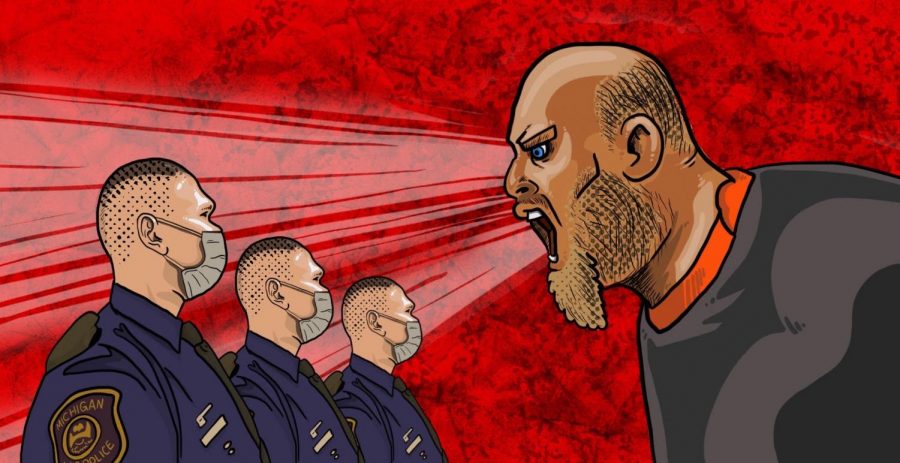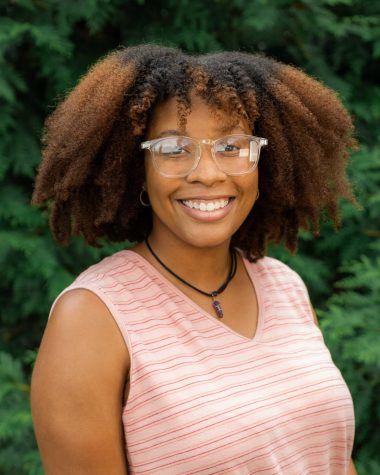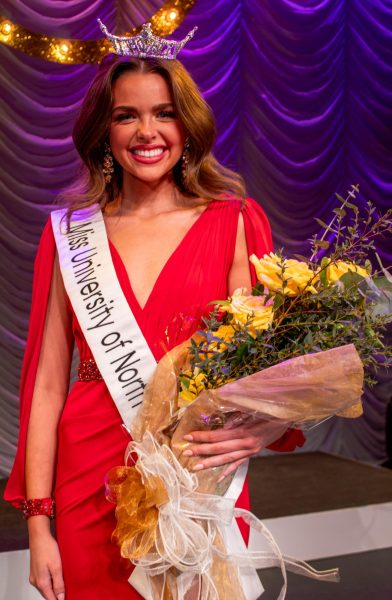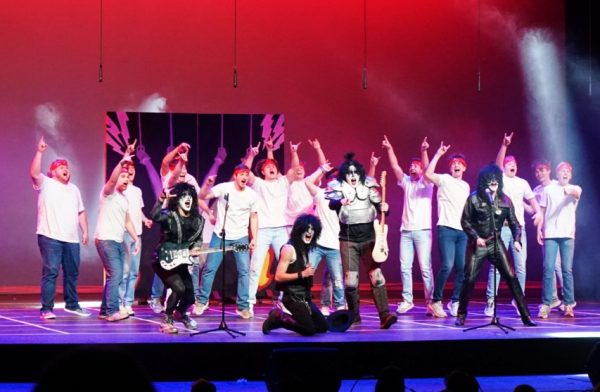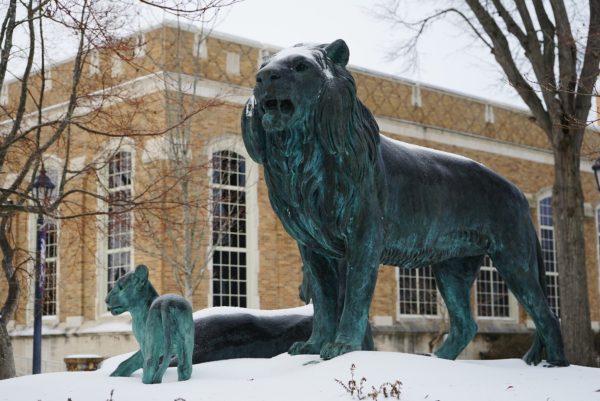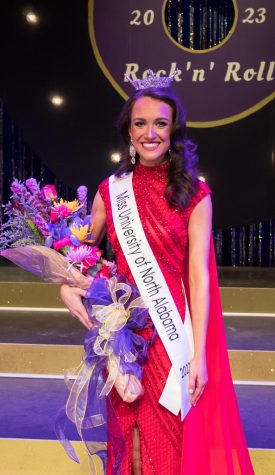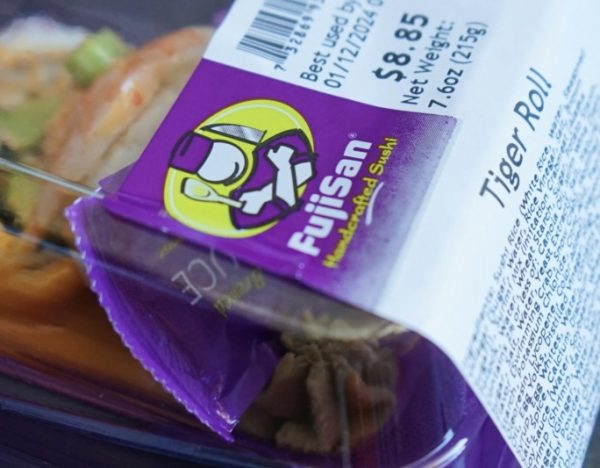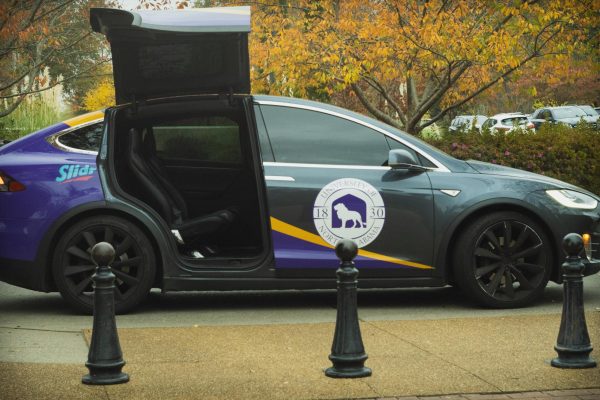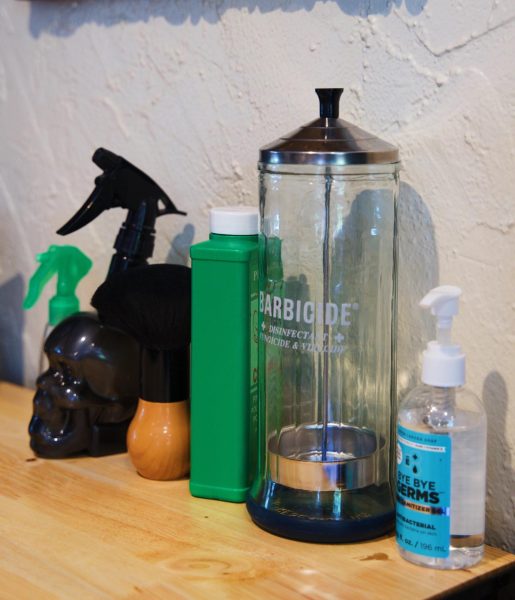Members of the Shoals to unite in ‘Rally for Justice’
June 3, 2020
Black Lives Matter – a social activist movement, originating in the African American community, that campaigns against violence and systematic racism towards black people.
In a video shared on May 25, George Floyd, a 46-year-old African American man from Minneapolis, was shown being forcibly detained by the police. In the clip, viewers saw Floyd, who was unarmed and compliant, pinned to the ground by an officer’s knee on his neck, along with two other officers pinning other parts of his body and one officer policing vocal bystanders.
“My stomach hurts,” Floyd cried out from under the weight of the officer. “My neck hurts. Everything hurts. Please, please, I can’t breathe.”
After eight minutes of Floyd pleading to be unrestricted, viewers tragically see Floyd take his last breath before going limp.
Since the spread of the video of Floyd’s brutal death, a series of nationwide protests emerged against racial injustice and police brutality. Although his death occurred in the state of Minnesota, all 50 states have joined in on the push for justice.
“For a society, there are many reasons that protests and rallies are important, but they are [especially] important right now for people of color,” said Meg Britnell, a soon-to-be University of North Alabama junior. “For years, there have been exuberant instances of police brutality and racial discourse against African Americans. Time and time again, we protest. We rally. We bring up the same issues over and over. We take time to explain our pain and explain why our lives matter. And time and time again, as a society we end up right back in square one.”
Britnell said that many may ask, “Why do we keep rallying and protesting if we keep ending up in the same place?” She believes that protests are crucial in many ways.
“Rallies educate,” Britnell said. “They draw attention to the issue and they get people talking and on some occasions, they invoke change. If we keep pushing, something has got to give.”
For a lot of people of color, the killing of Floyd was a dark reminder of the inequality that has consumed the lives of African Americans across the country. It brought back the memory of Trayvon Martin, a 17-year-old boy who was fatally shot in Florida for wearing a hoodie in February of 2012, and Ahmaud Arbery, a 25-year-old man killed by “armed vigilantes” for jogging through a neighborhood in February of 2020.
Britnell said that the death of Floyd was very personal to her being because she is a woman of color.
“I grew up in [Haleyville,] a city that didn’t have very many black people, in a home with white parents and siblings and graduated from a school district that was predominantly white,” Britnell said. “I grew up being very confused about my blackness and I grew up with very biased and skewed opinions.”
It was not until Britnell moved to attend Bevill State Community College that she realized how little she knew about herself and her culture.
“I had to dig up my blackness out from under all the ‘whitewashing’ that had been built over it for years,” Britnell said. “I started investing time in black studies and educating myself, and I started to realize how big of an issue we as people of color had today and many, many years before now.”
While the African American community is upset with the recent events, many from the white community are also standing alongside them in support, exclaiming “Black Lives Matter,” “Silence is Violence” and “I cannot understand, but I can stand with.”
Ally White, a student at Northwest Community College, said the recent deaths of George Floyd and other people of color makes her outraged and heartbroken.
“It angers me that no matter how many times this has happened, law enforcement still has not learned or changed their ways,” White said. “These events have made me realize that I have to do something. That I have to use everything in my ability to help people of color’s voices be heard.”
This was why White and Britnell teamed up with a few others within the Shoals area to host a “Rally for Justice.” This protest will take place in front of the Florence Post Office on June 7 from 12 to 2 p.m., where only people of color will speak.
“I feel like a lot of people here don’t understand the severity of what happened,” White said. “[So,] we all decided to join together to organize this and bring attention of the murder of George Floyd, police brutality in America and the Black Lives Matter movement.”
At the rally, materials such as signs, sunscreen, first aid kits, pain relievers and snacks will be provided to the protesters. People have also volunteered to pick up protesters and bring them to the event.
Still, the hosts of this event understand that the COVID-19 pandemic is ongoing, with 18,554 confirmed cases in Alabama, according to Alabama Public Health as of June 3.
“I definitely want people to observe social distancing guidelines as much as possible and wear masks,” White said. “If anyone doesn’t have a mask I do believe we are going to have some at the protest for free.”
The “Rally for Justice” Facebook page was created a few days after Floyd’s death, and already there are 168 people who have responded “Going” and 233 people who have responded “Interested.”
“Going into any protest, you kind of just have to prepare yourself for the best and the worst,” Britnell said. “I’ve been active in a lot of LGBTQ+ protests and many human rights campaigns, so when I was asked to do this, I was excited but also terrified. I’ve always been so vocal about issues between society and the people of color community, but I’ve never prepared myself for the moment when I’d be leading a protest for my own right to live.”
Britnell said she doesn’t know what to expect, but she has been keeping herself aware of what is going on in other cities and states with protests.
Recently, protests have spread ationally. Some were peaceful, while others turned into rioting, looting and vandalism.
“Everything is all so crazy right now,” Britnell said. “I think the main issue is that a lot of things are misconstrued and I hate that, especially when it comes to the media.”
Britnell said that when she was growing up she had always read headlines about how black people were “bad.” She rarely ever saw a headline that projected a good light on people of color.
“I’ve seen non-people of color looting as well,” Britnell said. “I’ve seen them protesting and I’ve seen them insight violence, but 9 out of 10 times the media only publicizes the instances where people of color did it. It just further pushes negative stigmas which are later used to push the agenda that black lives don’t matter.”
Britnell posed the question: “And why do black people have to be exceptional for their life to matter?”
“Personally, I can say that I’m glad people are protesting, but I cannot speak on the way that they are protesting,” Britnell said. “As a person of color, I’m angry. I’m hurting. It’s a hard time to be black, as it has been for a long time.”
Although Britnell has not been on the scene of the protests occurring, she said she can imagine the variations of emotions and the intensity and passion of them as well.
“I’ve seen a lot of takes on the protests,” Britnell said. “Some [ask], ‘How does looting help combat police brutality?’ and I’ve seen some counter arguments [asking], ‘How does bombing the Middle East solve terrorism?’ And it’s kinda like, how it is it always, ‘get over slavery,’ but 9/11 is ‘never forget’?”
Britnell said that racial injustice and police brutality are inherent to capitalism and that it will be around until capitalism is gone. She said she thinks that is why people are looting because it is a short term way that protesters can collectively get some semblance of more immediate reprisal for these injustices.
“I’m not into the violence,” Britnell said. “I am keen to a more gentle yet passionate approach. But I can’t say that I wouldn’t act out if I was being treated the way many of these protesters have been treated.”
Britnell has attentively watched the turmoil unfold on the news, including coverage of cops pushing people and throwing them around, as well as peaceful protesters sprayed with mace, tear gassed and beaten.
“They’ve tried being peaceful and it always ends up in senseless violence,” Britnell said. “I can understand why many of them are angry. And can you blame them?”
Despite the rioting and destruction triggered by Floyd’s death, Britnell acknowledged that there is good coming from the mass protesting.
“But, what I do see are a lot of people coming together for one central cause,” Britnell said. “I see other countries holding vigils and rallies. I see non-people of color who have never spoken up about these issues finally using their voices. I also see non-people of color and people of color showing their true colors and expressions of ignorance. On the other hand, I see non-people of color acknowledging their leverage and privilege.”
Britnell said that a lot of people are educating themselves and are trying to see the bigger picture. She said they are helping each other and many are experiencing some harsh new realities.
“I’ve seen a lot of people who’ve never had to deal with adversity throwing themselves into protests and coming out with a whole new prospective,” Britnell said. “I want people to understand that this isn’t just a joke. This is real life. And what they may be subjecting themselves to for one day is something that a lot of us deal with regularly.”
Both Britnell and White, two of four hosts of the protest, expressed high hopes for the “Rally for Justice,” anticipating that it can make a difference in the Shoals area.
Britnell said that after the rally, she would like to see more changes within the criminal justice system.
“I want people to understand that their individual positive experiences with police do not outweigh the fact that institutionalized racism is and will always be the backbone of our criminal justice system,” Britnell said. “That’s a harsh reality. We need change and I want so badly to see it. And sadly, I know this won’t be the last time that these protests take place. We’ve got a lot of work to do. Progression is going to take a long time.”
For those who cannot attend the “Rally for Justice,” Britnell and others will be recording the protest live via Facebook Live.


